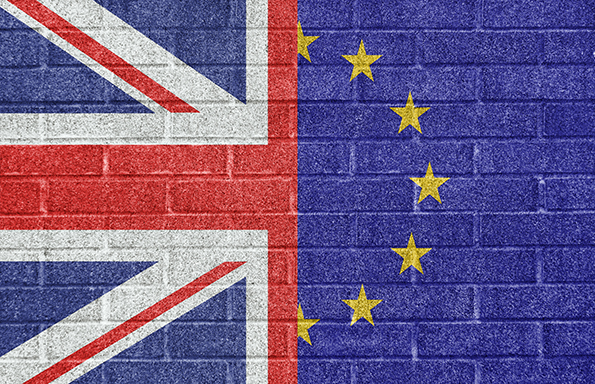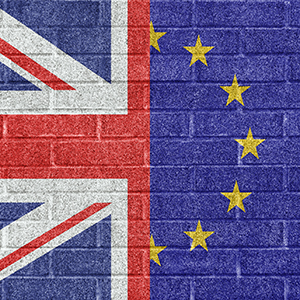
University of Liverpool experts respond to the UK’s EU Referendum result:
Dr Firat Cengiz, Senior Lecturer in Law & Marie Curie Fellow:
“This was a typical referendum: it was introduced for the sake of short-term political ambitions and agendas. Its discourse was highly manipulated. It did not offer people a real choice to make an impact on either the UK’s or the EU’s governance.
And it has now brought a highly uncertain and unpredictable future both for the EU and the UK. The exit negotiations will take a lot of time, energy and effort for many years to come. This will divert attention from the EU’s and the UK’s real issues, including improving the democratic nature of institutions and addressing the political and economic effects of the 2008 financial and economic crisis.
It is absolutely vital that the UK universities and the research and education community plays an active role in the Brexit negotiations, so that we can protect our identity as European researchers, we continue taking advantage of European research grants, and we continue to collaborate with our fellow researchers from the EU.
It is also absolutely vital that UK universities take action to make sure that there will not be any change in the status of EU and other migrant students and researchers in the foreseeable future and that they still feel welcome at UK universities.”
Professor Peter Shirlow, Director of the University’s Institute of Irish Studies:
“The End of the Union? In Northern Ireland 56% chose Remain – generally linked to the nationalist and republicans and liberal unionists who appreciated the value of Europe. EU funding was critical for the peace process in Northern Ireland and aided the development of the Belfast Agreement and the eventual power-sharing between Sinn Fein and the Democratic Unionist Party. The aim of EU funding was to stabilise relationships between ethnic groups and their respective political leaders.
One result was that some nationalists began to reach a rapprochement with the new Northern Ireland state. Symbolically, after 1992, the border was only a constitutional line due to the removal of customs and security measures. This meant that some nationalist felt that Ireland was united through trade and freedom of movement, but the Irish government have stated that border control would have to be re-introduced.
That dents senses of rapprochement and first thing this morning, Sinn Fein, like the SNP, called for a border poll. In a sense voting Leave has the capacity to unravel progress made within the peace process in Northern Ireland.
That does not mean a return to the ‘bad old days,’ but instability in the sense that a pro-Europe population in Northern Ireland feels further detached from Britain. It will create friction between Sinn Fein and the DUP and due to the importance of trade between the two parts of the islands of Ireland that has probably just become more expensive. The Northern Ireland Assembly in mimicking foreign direct investment strategies in the Republic of Ireland, aimed for lower corporation tax to grow jobs as part of a much needed peace dividend. Will those companies come now if there is no easy access to the European market?
Paradoxically the desire for UK independence has probably aided the process of its break-up.”
Dr Stuart Wilks-Heeg, Head of Department of Politics:
“How did the UK end up voting Leave? Normally, the electorate is pretty risk-averse. The PM warning us all not to take a leap in the dark with Boris and Nigel should have done the trick. It didn’t.
Leave made enough people doubt Remain’s warnings about the likely impact of leaving on the economy and made immigration the defining issue instead. Rightly or wrongly, the argument that it’s hard to get a doctor’s appointment or a council house because of immigration is easier to grasp than economic projections of how Brexit will impact on GDP.
Leave’s core messages were simple to understand and resonated strongly with large numbers of voters. It was easy to mock the ‘take back control’ slogan repeated endlessly by Leave campaigners, but the narrative was highly effective.
‘Take back control’ captured what Leave wanted people to believe: that everything would be better if we made all our own laws, our own trade deals and our own decisions about who could settle in the UK. That was the prospect Brexit purported to offer. The detail was always sketchy and experts poured scorn on it, but what mattered was that the story seemed plausible to a majority who wanted ‘change’.
There were always concerns about whether sufficient numbers of traditional Labour voters could be persuade to vote Remain. Jeremy Corbyn was almost invisible and Labour’s campaign efforts were too little, too late. Above all, Remain needed a narrative that recognised concerns about free movement without compromising the case for staying in the EU. It never squared the circle.
In the end, the result was a shock but, like the 2015 General Election, it probably shouldn’t have been. The question now is how our political and economic systems respond to that shock.”
Costas Milas, Professor of Finance:
“What is to happen after the BREXIT vote? David Cameron tried to put a ‘brave’ face but the reality of the matter is that he will have to step down possibly sooner than…October 2016 which he mentioned in his post-Referendum statement. Indeed, Eurosceptic Tories would hardly trust Mr Cameron’s initial BREXIT negotiations with the remaining EU leaders when he has passionately fought against BREXIT. Whether transition to a new leadership proves smooth or turbulent remains to be seen.
What is clear, however, is the lack of preparation and/or (consistent) plans on how we will handle the BREXIT ‘issue’ during negotiations with our European partners. With all these in mind, it is more likely than not that we will witness substantial political instability, a capital flight from the UK and, of course, economic recession. Given that our economy relies largely on consumer spending, the immediate question is whether the BREXIT majority will be prepared to put a trust on its vote by continuing to spend in order to keep the economy ‘alive and kicking’. I very much doubt this.
BREXIT leaders, such as Michael Gove, have attacked economic ‘experts’ (including myself) who overwhelmingly warned against the huge economic risks of BREXIT. Their (rather) odd argument is that economic ‘experts’ have to be wrong because…they did not predict the 2008-2009 financial crisis! With Brexit ON, I am ‘delighted’ to report that we will know pretty soon whether economists (including myself) are going to be wrong this time around!”
Dr Samantha Currie is a Senior Lecturer in Liverpool Law School specialising in EU law and migration:
“In light of the referendum result in favour of leaving the EU, we are plunged into unprecedented uncertainty across a whole range of legal and policy fields.
Such uncertainty will be especially keenly felt by migrants, both EU migrants living in the UK, and UK migrants resident in the EU.
It will take time for clarity to emerge as to their legal and residence status and, in the meantime, it is these individuals that will need to live with the consequences of the referendum result in their day-to-day lives. Guarantees of a protected right to reside for those already lawfully present will presumably be quickly announced but, nevertheless, the impact of such insecurity of status should not be underestimated.
Free movement rights for EU citizens have traditionally been about more than simply residence entitlement. They have also encompassed a panoply of broader social entitlement and have had as an aim the desire to facilitate a migrant’s integration into the Member State.
Outside of this broader framework of protection, many migrants are likely to feel extremely vulnerable and exposed. Looking ahead, there is little doubt that migration from the EU to the UK, and vice versa, will become increasingly more complex and bureaucratic in its nature.”
Dr Beatriz Garcia is Head of Research at the Institute of Cultural Capital
“I wake up to the not totally surprising but still mystifying news of a Brexit. My first thought is: research on Europe is more needed than ever, now. Can the UK have it both ways, protecting the best out of its relationship with European institutions, while abandoning the common EU project?
I wonder about the impact on British cities , in particular. A high proportion of UK cities have voted ‘in’. Edinburgh by 74.4%, London by 75.3% (both with an over 72% turn out). Glasgow and Liverpool, Leeds and Belfast have also voted ‘in’. One guesses the economic case for London, a case for identity in Scotland and Northern Ireland but also a case for culture, and the importance of the EU supporting their cultural renaissance in cities like Glasgow and Liverpool. Leeds aspires to follow their lead and become European Capital of Culture in 2023. Will this be interrupted? There are measures in place to allow non-EU cities to host this title, as was the case with Stavanger, host of the title alongside Liverpool in 2008. But this is now up to the generosity of our EU counterparts. Will they prove to be more mature and magnanimous than the UK is showing to be today?
The UK is turning its back on one of the most defining 20thCentury collective projects, a project that has triggered and facilitated tremendously high levels of cultural and educational exchange, enabling the difficult transition from industrial to post-industrial economies across the continent and making Europe a global referent for urban cultural renaisance, with UK cities leading the way . Let’s see how this looks like, now, in the 21stC, if we go down a fragmentation ‘each-to-their-own-interests’ route and allow ourselves to be fooled by the notion that in ‘globalisation’, we are all equal partners.
The European project is built on complex historical foundations but has such a rich and enormously promising cultural basis to develop from. It is clear today that the cultural angle has not been shouted sufficiently about during the EU’s first decades of life, and Europe is paying a price now. I trust this will change, particularly now the EU has announced it will place culture at the heart of its international relations programme.
Ultimately, this will be another UK loss. I trust we can work towards preventing the worse. The UK is Europe and it needs European backing. Let’s move on but not ignore nor forget the best (often, under-appreciated) dimensions of EU cultural and educational exchange to date. Rather than feel above everyone else, in the aftermath of this Referendum result, the UK may need to learn to be more humble and appreciative of its immediate neighbours if it wants to keep playing the global cultural actor role it seems to take for granted.”
